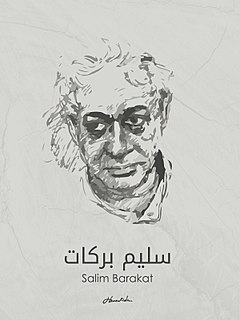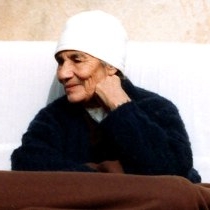 W
WMah Sharaf Khanom Mastoureh Ardalan or Mastura Ardalan was a Kurdish poet, historian, and writer.
 W
WArjen Arî was a contemporary Kurdish poet and writer.
 W
WShamil Asgarov or Shamil Askerov was a Kurdish scholar, poet, and researcher on the history of the Kurds in Azerbaijan. He was the leader of Kalbajar's large Kurdish community, founder and former director of the Kurdish Museum in Kelbajar, and editor of the Kurdish newspaper Denge Kurd published from 1991 to 2004 in Baku, Azerbaijan. Shamil Asgarov translated the classic Kurdish love story Mem and Zin into Azerbaijani and was the author of 17 books among them one, Ferhenge, the Kurdish-Azerbaijani dictionary, was published in 1999 by the support of the Soros Foundation.
 W
WSalim Barakat is a Kurdish-Syrian novelist and poet. He was brought up in Qamishli in northern Syria and spent most of his youth there. In 1970 he moved to Damascus to study Arabic literature but after one year he moved to Beirut where he stayed until 1982. While in Beirut he published five volumes of poetry, a diary and two volumes of autobiography. He moved to Cyprus and worked as a managing editor of the prestigious Palestinian journal Al-Karmel, whose editor was Mahmoud Darwish. In 1999 he moved to Sweden, where he still resides.
 W
WSherko Fayaq Abdullah, was a Kurdish poet. He was born on 2 May 1940 in Sulaymaniyah in Iraqi Kurdistan as a son of the Kurdish poet Fayak Bekas.
 W
WNari (1874-1944) is the pen name for Mela Kake Heme, a Kurdish poet. He was born and died in Marivan. He had a close relationship to Mahmud Barzanji, Taher Begi Jaf and Qani.
 W
WCigerxwîn or Cegerxwîn was a renowned Kurdish author and poet. He is known to be one of the most influential Kurdish writers and poets in the Kurdistan region of the Middle East, and his work has been renewed for the creation of hundreds of songs and played a crucial role in the preservation of Kurdish cultural heritage.
 W
WŞeyhmus Dağtekin is a Kurdish poet and writer. Dağtekin was born in the village of Olgunlar in Adıyaman Province in Turkey. He currently resides in France, Paris, where has lived since 1987. He writes in Turkish, Kurdish or French, and is the author of seven poetry books, and a novel À la source, la nuit. He has played a leading role in renewing French poetry.
 W
WWalid Kewikha Muhammed or Wali Dewane was a Kurdish poet. Dewane was born in Said Sadiq city.
 W
WMohammad Ghazi was a prolific, renowned Iranian translator and writer of Kurdish origin who translated numerous books mainly from French into Persian. He wrote/ translated nearly 70 books.
 W
WHajj Nematollah was an influential mystic and religious leader of the Qajar Empire. He was born in Jeyhounabad, Iran and is considered one of the greatest leaders and mystics in Kurdish and Ahl-e Haqq history. Two of his most famous works of poetry and history are Furqān al-Akhbar and Ḥaqq al-Ḥaqāyiq yā Shāhnāmah-ʾi Ḥaqīqat. According to Encyclopædia Britannica, "The chief source of information about the Ahl-e Haqq is the Firqan al-Akhbar, written in... early 20th century by …"
 W
WSuwara Ilkhanizada (1937–1976) was a Kurdish poet and writer. He was born in the village of Turjan near Saqqez in the north-west of Iran. He went to local school and continued his studies in Tabriz.
 W
WAhmad Khani, also spelled Ahmad-i Khani, was a Kurdish writer, poet, astronomer and philosopher. He was born amongst the Khani's tribe in Hakkari province in present-day Turkey. He moved to Bayezid in Ritkan province and settled there. Later he started with teaching Kurdish (Kurmanji) at basic level. Khani was fluent in Kurdish, Arabic and Persian. He wrote his Arabic-Kurdish dictionary "Nûbihara Biçûkan" in 1683 to help children with their learning process.
 W
WJan Pêt Khorto is a Syrian Kurdish poet, writer, and public speaker. His poetry is categorised as having political orientation and has been characterized as exile literature.
 W
WHaji Qadir Koyi was a Kurdish poet. He carried on the nationalistic message of Ahmad Khani in his writings. He wanted to enlighten the people and help them to remedy the problems of illiteracy and backwardness and ideas which result from lack of knowledge and religious fanaticism. He encouraged people instead to turn to science and to the realities of modern society in the struggle to liberate and build an independent Kurdistan. According to him, a Kurd is one who speaks Kurdish. In his time, in the late 19th century, the remaining Kurdish principalities had been overthrown by the Ottoman and Persian states. Koyi attacked the shaikhs and mullahs who did not care for the Kurdish language and the notables who ignored the destinies of their people. Living his last years in cosmopolitan Istanbul, he was familiar with the nationalist struggles and the material advancement of modern nations. He constantly advocated use of the Kurdish language. Although his own medium was poetry, he urged the Kurds to publish magazines and newspapers. Calling on the Kurds, in the 1880s, to unite and form their own independent state, he also urged them to use the modern tools such as newspapers and magazines for mass communication. The first Kurdish newspaper, Kurdistan, was published in Cairo in 1898, a year after Haji Qadir's death. Farangis Ghaderi who has studied his poetry in her PhD dissertation argues that modern Kurdish poetry emerged in the late nineteenth century and with Koyî's poetry. She also argues that Hacî Qadirî Koyî should be considered the architect of Kurdish nationalism.
 W
WZeki Majed is a Kurdish filmmaker and poet. He was born and raised in Sofia, Bulgaria.
 W
WDilshad Meriwani was an influential Kurdish poet, actor, writer, songwriter, and film director as well as a historian and activist who was executed by the Iraqi government during Saddam Hussein era on March 13, 1989 for teaching Kurdish language in Latin alphabets. He was born in the city of Sulaimani in Iraqi Kurdistan.
 W
WHemin Mukriyani or Hêmin Mukriyānī (1921–1986) was the pen name for Seyed Mohammad-Amin Shaikholislami Mukri, Kurdish poet, journalist, translator, and literary critic.
 W
WMalak Jân Nemati was born in 1906 in Jeyhounabad, a village in Iranian Kurdistan. Also known as Sheikh Jâni and Saint Jani, she was a charismatic figure and a mystical writer and poet in Kurdish and Persian language. She was the daughter of Hajj Nematollah and the sister of Ostad Elahi. There are few written sources about her life. Some elements can be found in the words of her brother Ostad Elahi whom she was very close to. A biography in French was published on the occasion of the centennial of her birth, including the translation of some of her poems and sayings.
 W
WPiryones was a Muslim Kurdish poet and Sufi of 13th century. He was the son of Sheikh Zakariya and the brother of Shah Nimatullah Wali the famous poet and Sufi. His shrine is in Hanjiran, which is a village 20 km from Mariwan. The available poems from Piryones are in Persian. Sheikh Shahabadin Shazeli wrote an ode to Piryones in Kurdish in 16th or 17th century.
 W
WFerhad Shakely is a prominent Kurdish writer, poet and researcher. He is one of the founders of modern Kurdish poetry in the post-Goran period. He was born in 1951 in the province of Kirkuk in Iraq. He began publishing poetry in 1968. In the early 1970s he studied in the Kurdish department of the Baghdad University. He joined the Kurdish national movement under the leadership of Mustafa Barzany in 1974 and went to Syria in 1975. He lived in Germany from Autumn 1977 to Summer 1978. Finally he settled in Sweden in the same year. In 1981, after studying for one year at the University of Stockholm, he went to Uppsala University where he studied Iranian languages. He is now teaching in the same university. He published a Swedish-Kurdish Journal between 1985 and 1989 called Svensk-Kurdisk Journal. Moreover, he published a literary Kurdish magazine, Mamosta-y Kurd between 1985 and 1996. In 1992, he published Kurdish nationalism in Mam and Zin of Ahmad Khani, a literary history that was translated into Swedish, Turkish and Arabic. Many of his poems have been translated into Persian, Arabic, Norwegian, Swedish, English, French, Italian, Icelandic and Danish.
 W
WAbdurrahman Sharafkandi or Hazhar or Hajar,, was a renowned Kurdish writer, poet, lexicographer, linguist, and translator, from Iran. Some sources of Sharafkandi birthplace have been mentioned in the village of Sharafkand, which is a district of Bukan.
 W
WEbdulrehîm Mela Seîd Mawlawi Tawagozi, was a Kurdish poet and sufi. His pen name was Madum or Madumi, but he is also known as Mewlewi Kurd, Mewlewi means wise aged man.